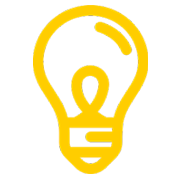EXECUTIVE COACHING
“ I absolutely believe that people, unless coached, never reach their maximum capabilities”.
– Bob Nardelli, CEO Home Depot
Why you hiring an executive coach is the best can do for your business?
Why hiring an Executive Coach is the best you can do for your business?The Corporative World needs leaders who are committed to their wellness and at the same time, passionate about their professional life. Companies being led by high-profile managers and CEOs will benefit the most from executive coaching processes, since, by empowering the talents and abilities of their leaders, they also improve the process of achieving the business goals.
Being in charge of a team requires planning and acting on a vision, the coaching process helps the leaders in the design of this vision, and later on, it supports the leader in achieving the goals.

Why you hiring an executive coach is the best can do for your business?
• Optimizing performance and productivity of leaders.
• Creating and / or improving business strategies.
• Training individuals in transition to a new role.
• Improving communication and relationship skills.
• Increasing self-confidence.
• Improving the personal-life/professional life balance.
In 2014, the Institute for Employment Studies (IES) of the United Kingdom and the James Cook University of Australia conducted a survey among 296 executives who had recently received coaching. This study was carried out with executives from 34 countries and various industries. The results are very much in line with other studies on the perception of the effectiveness of coaching by the coachees (such as the International Coach Federation survey):
– 90% of respondents described their coaching experience as effective or very effective.
– 96% would participate again in a coaching process.
– 98% of the participants would recommend coaching to their colleagues.
%
90% of respondents described their coaching experience as effective or very effective.
%
%
Source: Results of the Coaching Effectiveness Survey 2014, James Cook University, Australia and Institute for Employment Studies IES, United Kingdom, in: Carter, A. et al., What Makes Coaching Effective? (2016) IES Member Paper 116, 2016
“In a recent study, training alone improved leadership skills by 22%. When combined with Executive Coaching, improvement jumps to 77%.“
– Fortune magazine
BENEFITS

Eases the Decisión making

Improves performance and Time management.

Improves the work environment and communication.
What is a coach?
As a coach, my role is to accompany, serve as a mirror, confront and support the executive, so s/he is able to walk the road from where s/he is now and to where s/he wants to go.
I believe that, as an individual, the executive is a complete being, full of resources and wisdom, seeking to expand his/her consciousness; my role is to accompany him/her to open spaces of possibility to create an exciting future, based on decisions and actions s/he takes in the present.
Coach´tasks
- Co-creates a space of trust and security for the client.
- Reinforces free expression.
- Supports a global vision of the subject.
- Promotes the discovery of perspectives.
- Defies client’s paradigms and logic.
- Confronts the client with him/herself.
- Promotes self-discovery and active learning.
- Facilitates the definition of objectives and action plans.
- Encourages to go further.
What coaching is not?
Coaching is not mentoring, consulting, psychological therapy or training. Coaching does not entertain in the past nor in the causes or whys. The coach is not a guide or a mentor.
How does executive coaching work?
Please find a brief summary of an executive coaching process:
STEP 1. INITIAL INTERVIEW WITH SPONSOR. (1 session) There is an initial virtual or face-to-face interview of approximately 60 minutes, in which the coach and the sponsor (company that will cover the coaching process of the executive) discuss about the background and reasons of this coaching process. The process expectations and conditions are clarified, the roles of the sponsor, the coach and the executive, the coach´s code of ethics and any other question that may arise about the process.
STEP 2. INITIAL INTERVIEW WITH EXECUTIVE. (1 session) In this initial virtual or face-to-face interview of approximately 60 minutes, the expectations and conditions of the process are clarified, the roles of the sponsor, the coach and the executive, the coach’s code of ethics and any other questions about the process.
STEP 3. REVISION AND APPROVAL OF THE AGREEMENT. (Approximately 1 to 3 sessions) In these weekly sessions, the coach and the executive explore the executive’s general objective for the coaching process, as well as the topics that need to be addressed to achieve it; they work together on progress and success indicatorss, which will be part of the Process Agreement. The Executive will present to the sponsor this Agreement, goals and success measurement indicators, so that both coincide in the general objective and the topics to be addressed, being able to suggest changes on the part of the sponsor. With this feedback, the executive and coach will redesign the agreement if needed, further detailing the goals and indicators; the Executive will present the agreement again to the sponsor until the latter approves it.
STEP 4. COACHING SESSIONS (Approximately 5 sessions). In these sessions, whose frequency is weekly, the topics outlined in the Agreement are explored. Each session will have an objective defined at the beginning, which allows the executive to see their own progress.
At the end of each session, together the coach and the executive will establish tasks, which represent the actions to be carried out to advance the process and which the executive commits to do before the next session. The success of the process depends very much on the executive performing the actions discussed during the sessions and the tasks form a large part of this effort.
STEP 5. FINAL COACHING SESSIONS (Approximately 4 sessions). These sessions, whose frequency is every 15 days, allow the executive to integrate the advances and what has been conscientized so far, so that he can internalize a new way of doing and being.
STEP 6. FINAL INTERVIEW WITH SPONSOR. In this meeting, the executive´s achievements are analyzed based on the Process Agreement, the goals established as well as the indicators initially outlined. This allows the process to be measurable and the impact that the coaching process has had can be assessed. The coaching process is finished.
What is my added value as Executive Coach?
Having gone through the different management levels and executive development for an international chain, I understand the various challenges faced by current executives: the group dynamics in which they are immersed, as well as the pressure to meet goals and obtain results.
As a coach, I have the tools to support the executive´s growth and expansion, integrating new leadership dynamics and assertive communication skills; I accompany her/him in the uncertainty of changes, exploring options to effectively manage the levels of stress inherent in their activities so that a positive and extraordinary impact on productivity and business results.
More information on About Me
“I never cease to be amazed at the power of the coaching process to draw out the skills or talent that was previously hidden within an individual, and which invariably finds a way to solve a problem previously thought unsolvable “.
– John Russell, Executive Director at Harley-Davidson Europe Ltd
Testimonies
Interested? Let´s connect!
Send me your information so we can schedule 30 minutes to talk about how I can help you with the changes you want to make, whether personal or organizational. In addition to assisting with questions about the coaching process, we can also make sure that my style and methodology will be the most appropriate for you or your company. It will be a pleasure to talk to you!
+52 1 998 397 0292
COACH@LIBELUCIONCOACHING.COM
CANCÚN, QUINTANA ROO, MÉXICO
Contact Us
